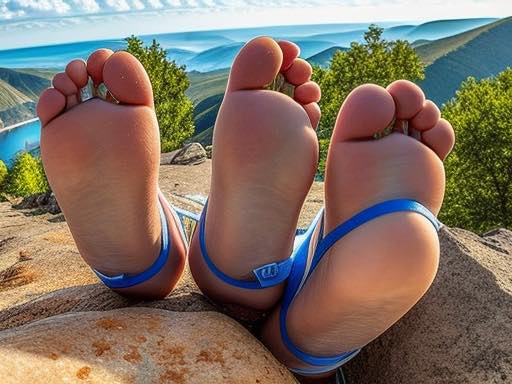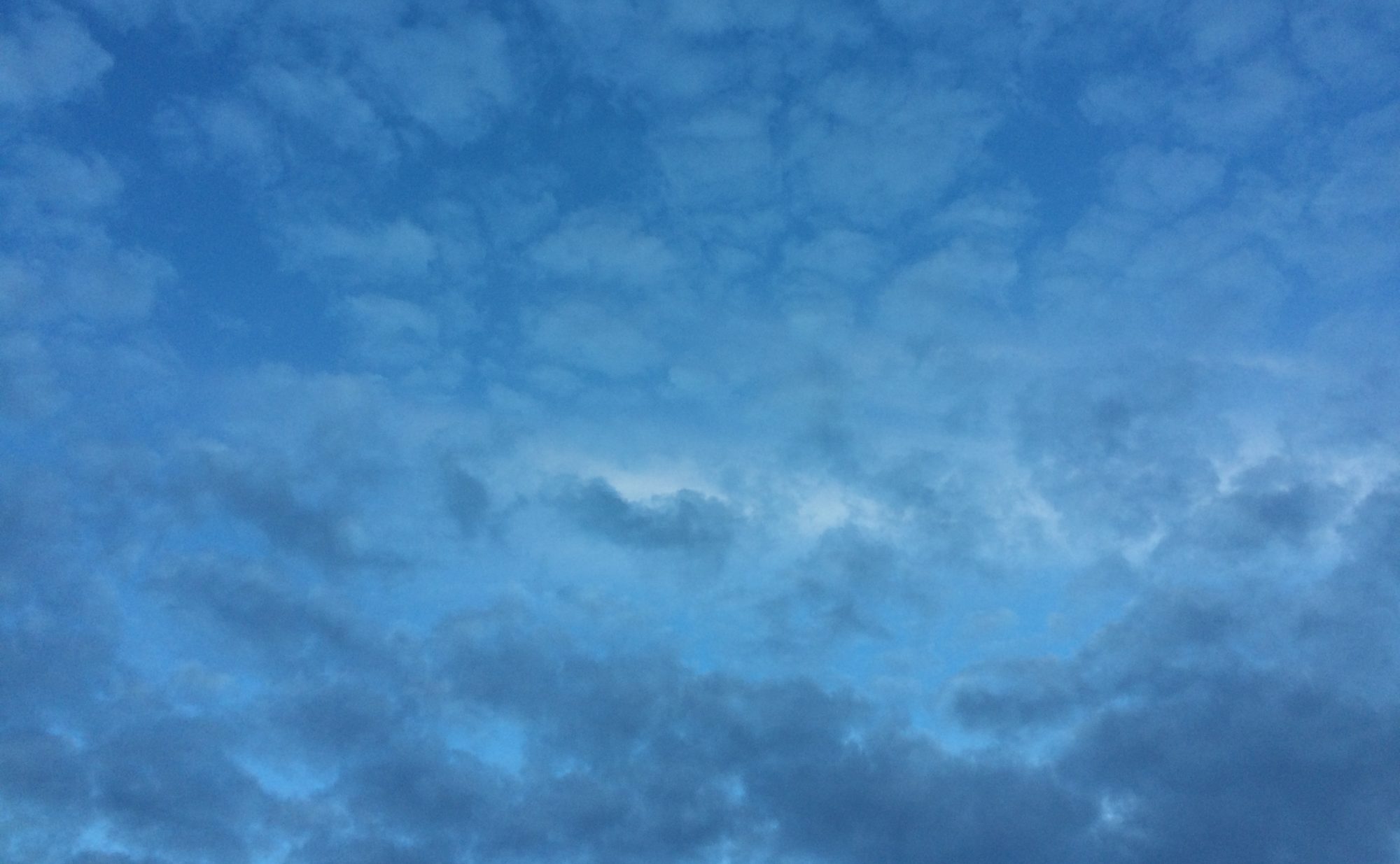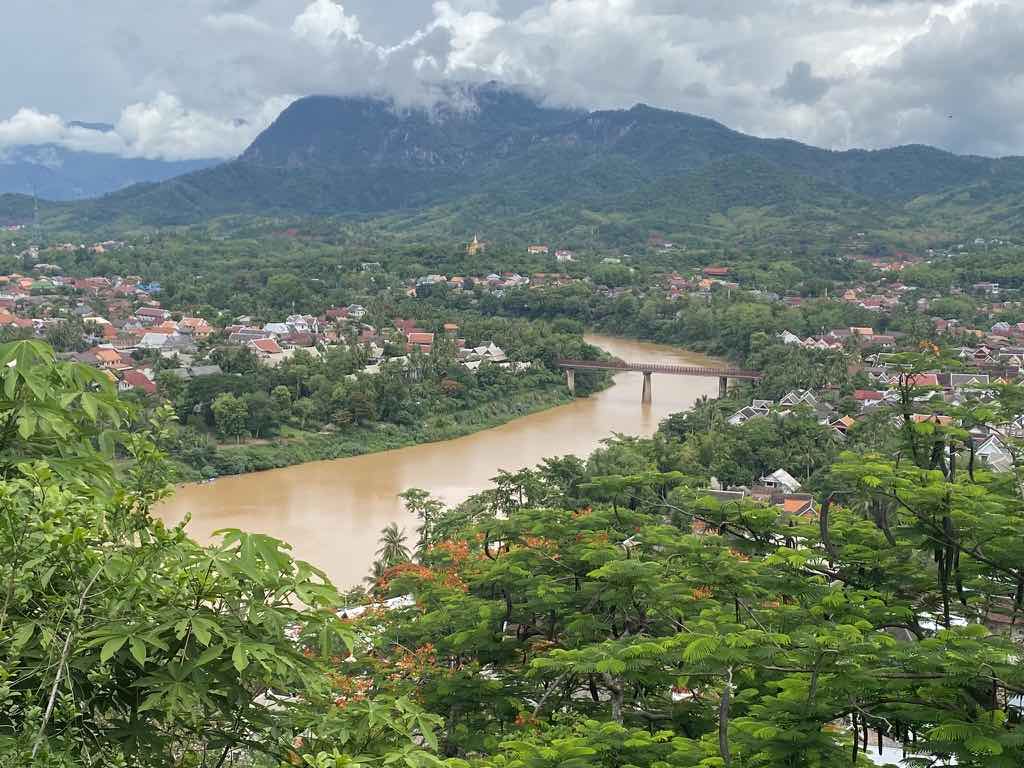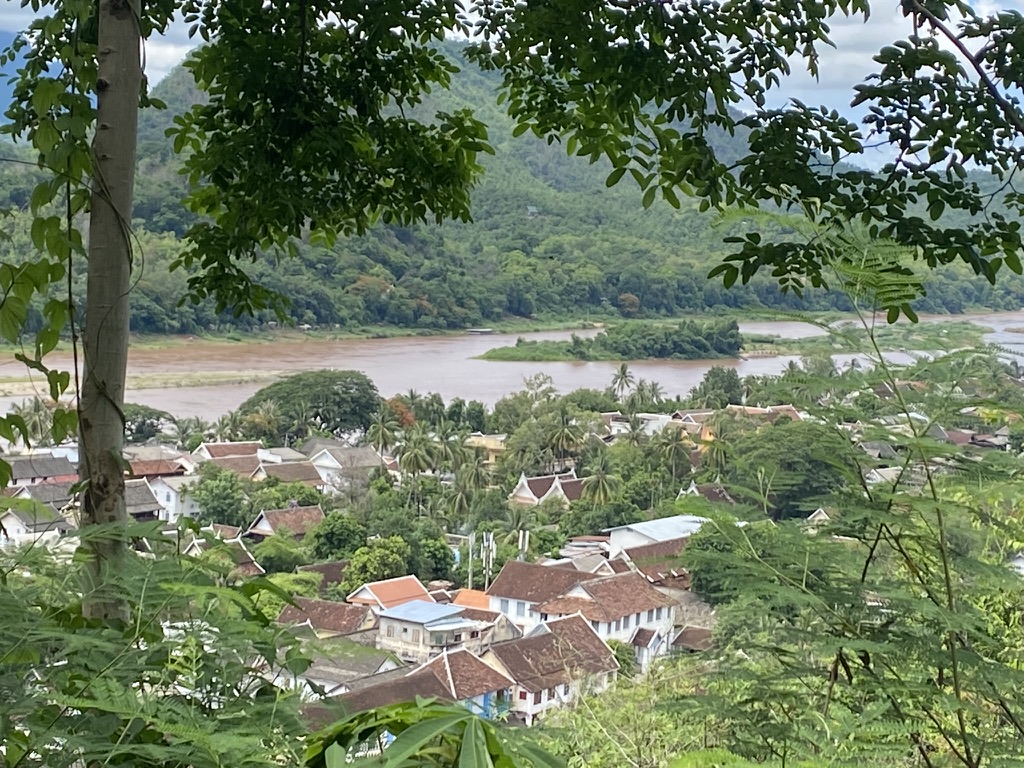
When FOMO Meets the Moment
There are moments, and there are moments.
We usually talk about moments as units of time, but that’s not really what we usually mean when we use the word. More often it’s a measure of attention, something that captures us, for an instant or an hour or an era. And then we move on. The moment the sun set. The moment I knew I loved you. The moment the Iron Curtain fell. Some moments are tiny and intense, little pinpricks of reality. On rare occasions, they can absorb you completely – you drop out of self-conscious awareness completely, and for that moment, there’s no distinction between you and the experience.
Fear of missing out often causes people to miss the moments that make life worth living.
Those moments of absorption, I think, are what the Romantics were looking for. These are experiences that pull you all the way in to them, so far in that you slip out of yourself. That’s the transcendence of the Transcendentalists. Ralph Waldo Emerson sought them actively, hoping to slip out of his sense of activity and intention. That, I think, is what he meant when he wrote about becoming a transparent eyeball – existing in experience, without the constant internal commentary that ties us down to who we are most of the time.
Those moments of transcendence create a little paradox.
If you asked someone in that moment, “Where are you?” there’d be no answer. There is no you in that state. You is sponged up into the whole greatness of are. All you are is here.
I can’t remember ever having had a moment like the ones Emerson describes, but you can get closer and further away. One day last summer I came as close as I ever have.
Over the Mekong River
Until last year, I’d never heard anyone begin a sentence with “When I was on vacation in Laos…” In fact, aside from a few Laos and an occasional Thai acquaintance, I’d never known anyone who’d admit to having been there. So I decided I’d become the sort of person who could say “When I was on vacation in Laos” and mean it. I was already in Thailand, and, since my book on life there came out during the pandemic, I found myself between research projects. So I decided to spend a few days one country to the north and found myself in Luang Prabang, the old royal capital of the Lao Kingdom.
While neighboring Thailand and Vietnam have exploded economically, Laos, a small, landlocked country, has been developing languidly. There were parts of Vientiane, the modern capital, that reminded me of Bangkok in the 1990’s, on a bad day. The streets were rutted, stores opened and closed at random times. Maybe I should have taken the hint: I had gotten used to the modern flash of Bangkok, but maybe “modern” and “flash” aren’t the best adjectives to seek out in Laos. The old capital, few hours further north, wears its own adjectives better.
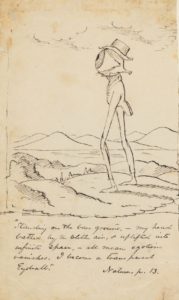
All of this is to say that the old city of Luang Prabang is like no place I’ve even been. It’s on a wooded peninsula at the confluence of the Nam Khan and Mekong Rivers. It is also a UNESCO World Heritage site, recognized for its interweaving of Southeast Asian and French Colonial architecture, its indigenous arts. And the city reflects its rather dark history, tracing the country's path from kingdom to colony to communism.
Across the street from the old palace – now a museum dedicated to the royal family, many of whom died decades ago in reeducation camps – sits a white stone staircase that winds its way beyond the outer wall of a temple and up a hill, away from the bustle of the markets and restaurants on the main street, and past a number of small shrines and statues of the Buddha.
It’s a diligent hill, sloping upward in a consistent, determined way until it reaches the highest point in the city. There is a small chapel there, and a crumbling stone edifice supporting a golden chedi. The ground had been leveled – sort of – into a plateau from which you can see, through the branches of flowering trees, the tiled rooftops of the old city, the rivers flowing as they merge, then the uneven pattern of greenery and right angles as houses become more sparse and spaced, and finally the forests growing up distant mountains, disappearing into the clouds.
If all this wasn’t spectacular enough, there were more species of butterflies fluttering around than I have ever seen in one place at one time. It felt like God was overdoing it.
People often describe views like this as breathtaking, but that idiom never spoke to me. I’ve never seen something so beautiful it made it hard to breathe. But it was a moment like the ones Emerson described, where my eye and my body and almost my entire being moved from one image to the next to the next. I didn’t quite feel myself become a transparent eyeball. But the experience pulled me in as I slid from moment to moment, captured by one incredible vision to the next.
I was more there than I’ve been anywhere in years.
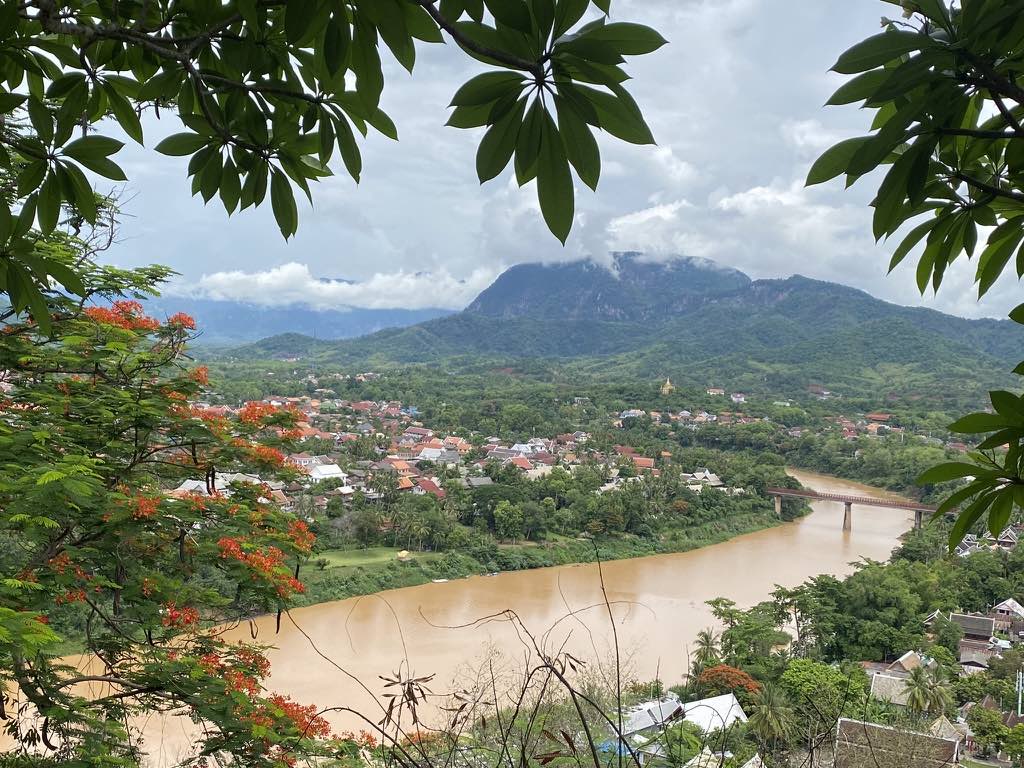
And I wasn’t alone in this. It was a humid afternoon – and it's always hot in this part of Southeast Asia. Wearing dark pants was appropriate and respectful (this was a temple, after all) but very warm, so I moved slowly, as did the half-dozen or so other visitors. A handful of local teenagers laughed with one another, in the calm, understated way that is either Buddhist or Lao or both. And one man about my own age stood motionless on a landing. At first glance I thought he was waiting for customers to buy his bottled water. No, he was just standing near a recycling bin, silently absorbing the beauty of the Buddha’s world. I understood why this place was hallowed grounds. There was something subtle in that silence that felt sacred if I let it – a dawning hint that there was more to the city than the tourist can see, and more to reality than the human world.
It was a bit of a relief to slip out of my normal self-consciousness, the self-aware existence that never really breaks from the ordinary run of my thoughts. This is one of the great things about being human: we can be different versions of ourselves as we move from moment to moment.
That variety matters. Being able to slip in and out of different states of awareness, being different kinds of me, shifting from American to anthropologist to history buff to overheated tourist to laugher-at-butterfiles to connecting with nature is an important source of joy and relief.
Clouds roamed slowly across the sky, and if the weather kept up the sunset would be even more glorious. So as I climbed down the steps on the other side I decided to come back when the sun was slipping toward the western hills. Maybe I'd have the chance to be even more here than I'd been already.
A Different Return
So as the sun began to sink I climbed the stone steps once again.
This time, though, I wasn’t alone. Somewhere some influencer had said this was great place to see a sunset, and their followers rearranged the message to mean that this was an excellent place to be seen as the sun set.
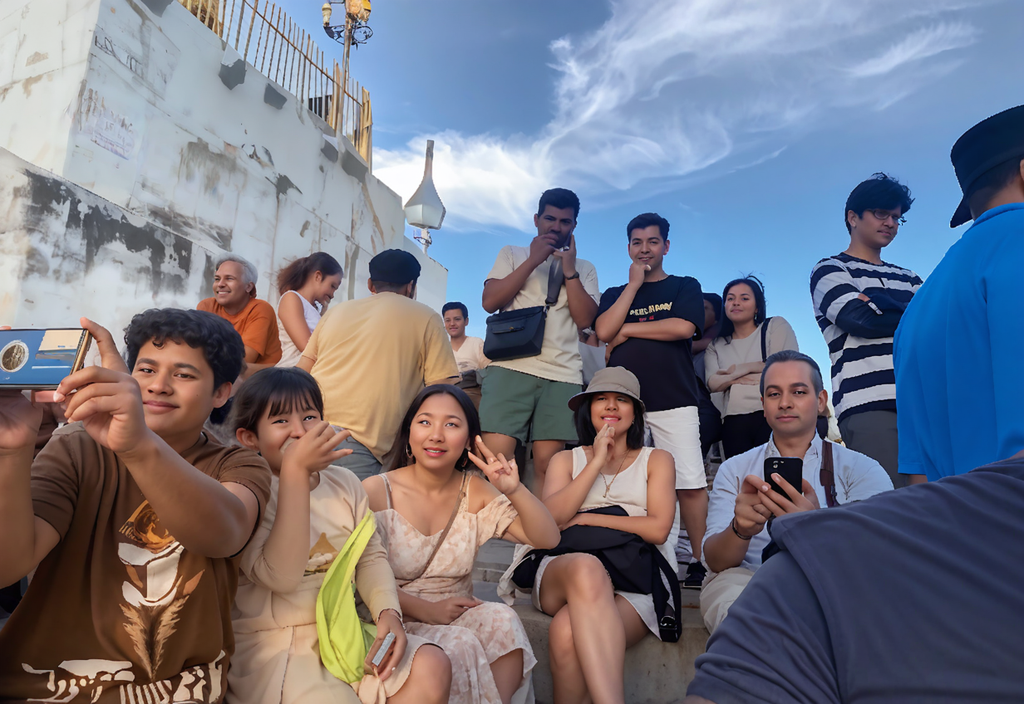
I wove my way through the squirming, wriggling crowd. It had a party atmosphere – loud and giddy, as though we were waiting for Beyonce to come out and sing on the mountains rather than for the sun to dip behind them. I found a spot, eventually, at the edge of the platform, with a view, only partially obstructed, to the west.
The colors were evolving. Yellows burnished to golds as greens darkened toward black, but in spite of the fact that everyone had ostensibly trekked up here to witness this, they didn’t seem to be paying attention. At last, not to the sunset. They were talking and laughing with one another.
I understand the desire to photograph sunsets. They can be beautiful. They can be unique. I find that looking at the world framed through a lens can help me focus on the moment more fully. So I think you can capture that sense of the sacred in a picture of a sunset, that opportunity to slip out of the clothes that tie us to our identities.
But not if the subject of the picture is you. When people pose in for pictures, they solidify. They become concrete entities. They look the way they look, among by the things they’re surrounded by. No slipping allowed: the flexibility of identity disappears.
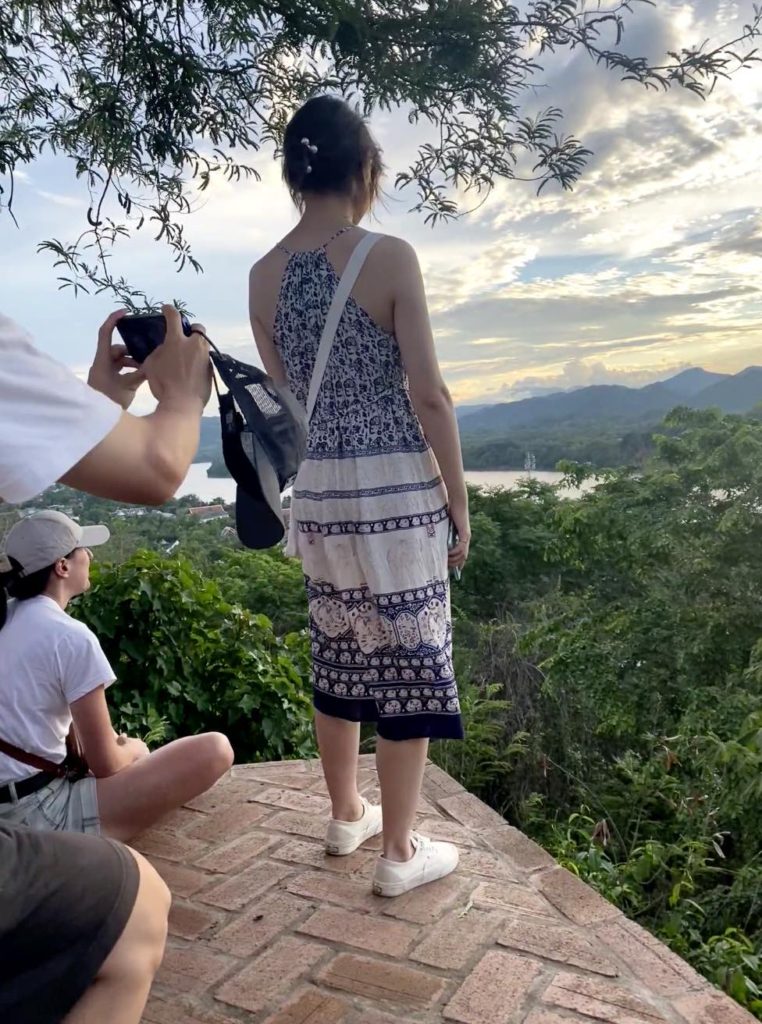
Unless you really are a transparent eyeball, when you stand in front of one all you’re doing is breaking up the flow of light and color as an opaque object in the middle of the frame.
What obstructed my view was the constant parade of tourists who stood at the edge of the platform for ten or fifteen seconds, back to the camera, to have their pictures taken in front of the evening sky, then retreat into the crowd of friends. The point, I eventually realized , was not to experience the wonderfulness of the place. It was to be seen doing it. They were so busy honing the fine art of appearing to appreciate sunsets they had no opportunity to actually do it. It was a Potemkin transcendence, narrow and thin as the screens on their phones, with the crowd and the noise edited out.
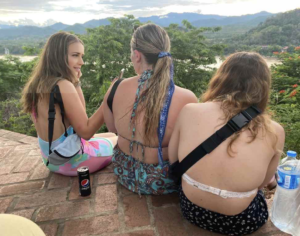
That’s the problem with being a transparent eyeball in the age of FOMO: for a moment, you become invisible to yourself. And if you can't see yourself then certainly nobody else can, either. And there's the irony of the Potemkin Sunset: either you can experience it, or you can let people know you did. It's only one or the other.
What, I wondered, was the opposite of a transparent eyeball?*
The light was fading and the path grew dim as we all headed back down toward Luang Prabang. In front of me a young American said it had been a good experience. He’d seen pictures of this place before, and was “feeling a little FOMO.”
Yeah, I said to myself. It would have been great if we’d been here.
